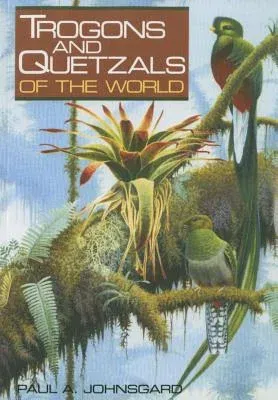Of all birdgroups, none is more closely associated with the world's
tropical forests than trogons and quetzals. With shimmering golden-green
feathers and long ornamental tail coverts, Central America's resplendent
quetzal often has been called the world's most beautiful bird. Other New
World as well as African trogonids also are iridescent and brightly
pigmented, while red or reddish brown hues predominate in Asian species.
Since deforestation and fires have ravaged many of the reclusive group's
prime habitats, ornithologists and conservationists may soon be unable
to study many of the world's trogonids in their native environments.
Beautifully illustrated with color plates and line drawings, this
comprehensive review of trogons and quetzals -- the first to be
published in more than 150 years -- covers all thirty-nine extant
species. The book includes detailed species accounts, range maps, and
identification keys as well as a chapter that discusses comparative
biology in terms of evolution, anatomy and morphology, behavior,
ecology, breeding biology, and populations. Forty hand-colored plates --
most by the renowned nineteenth-century illustrator John Gould -- depict
adults of both sexes; nineteen line drawings by author Paul Johnsgard
illustrate behavior and anatomy. The book also includes more than three
hundred bibliographic references. Despite their beauty and renown among
birders, little has been previously published about the biology of many
trogon and quetzal species. This up-to-date survey will serve as a
valuable reference for ornithologists, conservationists,
aviculturalists, and birdwatchers worldwide.

